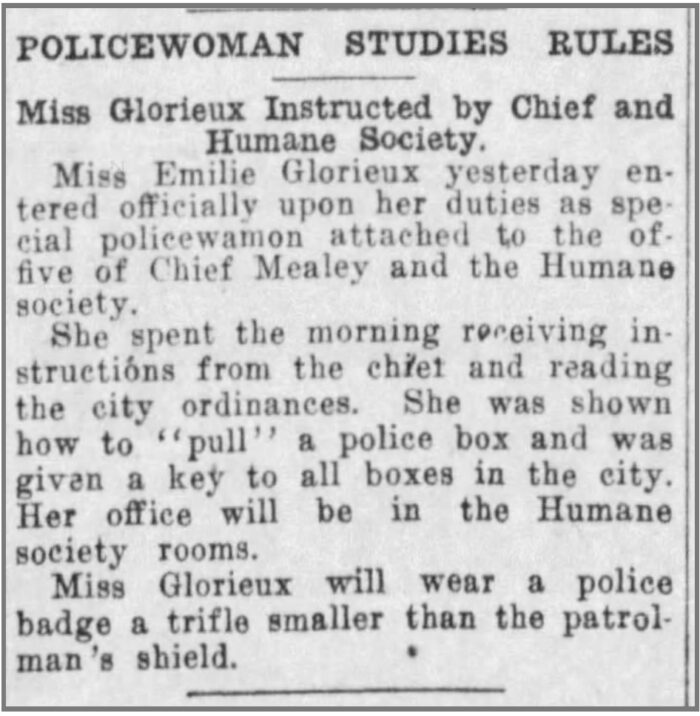On this day in 1920, the Tennessee legislature narrowly approved the 19th Amendment extending the right of suffrage to women. Eight days later, on August 26, the U.S. Secretary of State proclaimed the amendment ratified.
It seems like a great time to chronicle the work of some of the women pioneers of the Minneapolis Police Department.
One early policewoman whose work predated the ratification of the 19th Amendment was Emilie Glorieux.
Officer Glorieux was appointed to the Minneapolis Police Department by Mayor J.C. Haynes on September 11, 1911. She reported to Chief Michael Mealey and had her office in the rooms of the Humane Society.
Officer Glorieux’s primary responsibility was the oversight of the public dance halls of Minneapolis. She was responsible for ensuring that nobody under the age of 21 be allowed into the public dance halls.
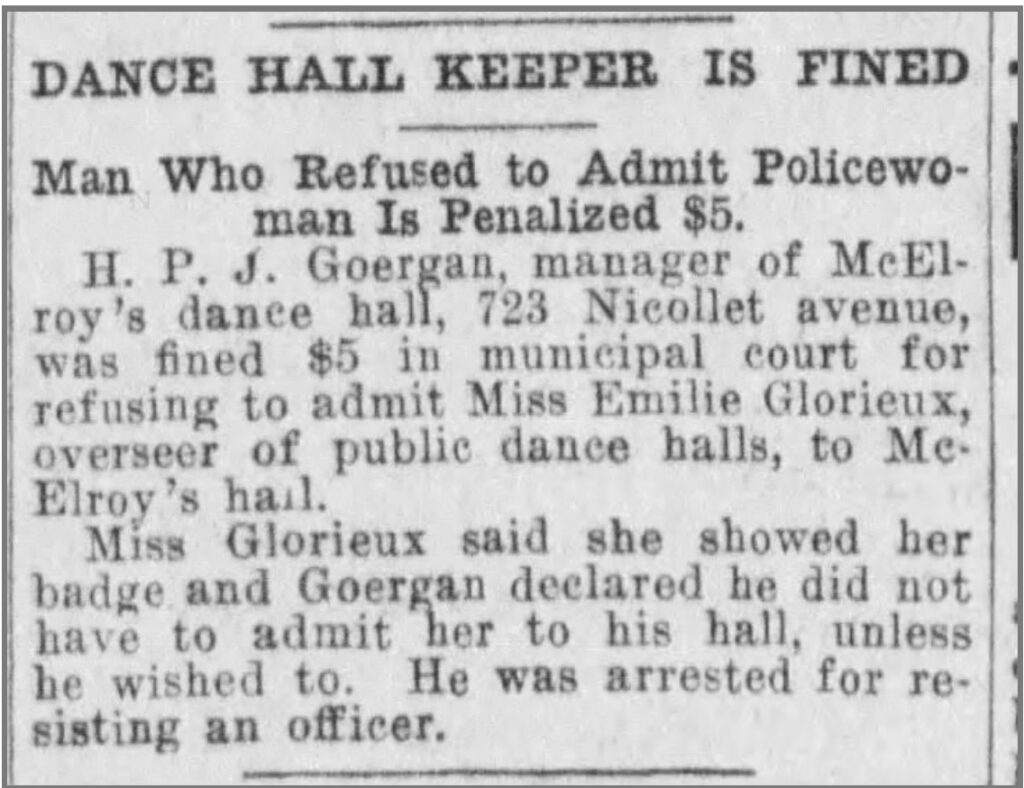
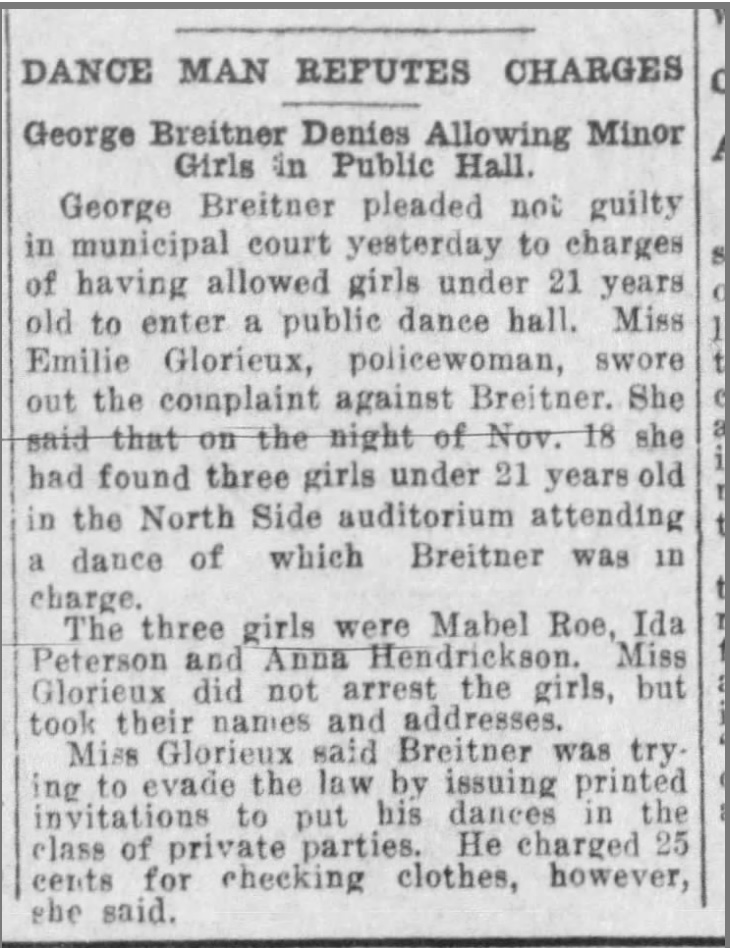
The responsibilities of her office extended beyond the dance halls and, like the majority of the policewomen of her time, she was often involved in preventing or addressing crimes committed by or against juveniles.
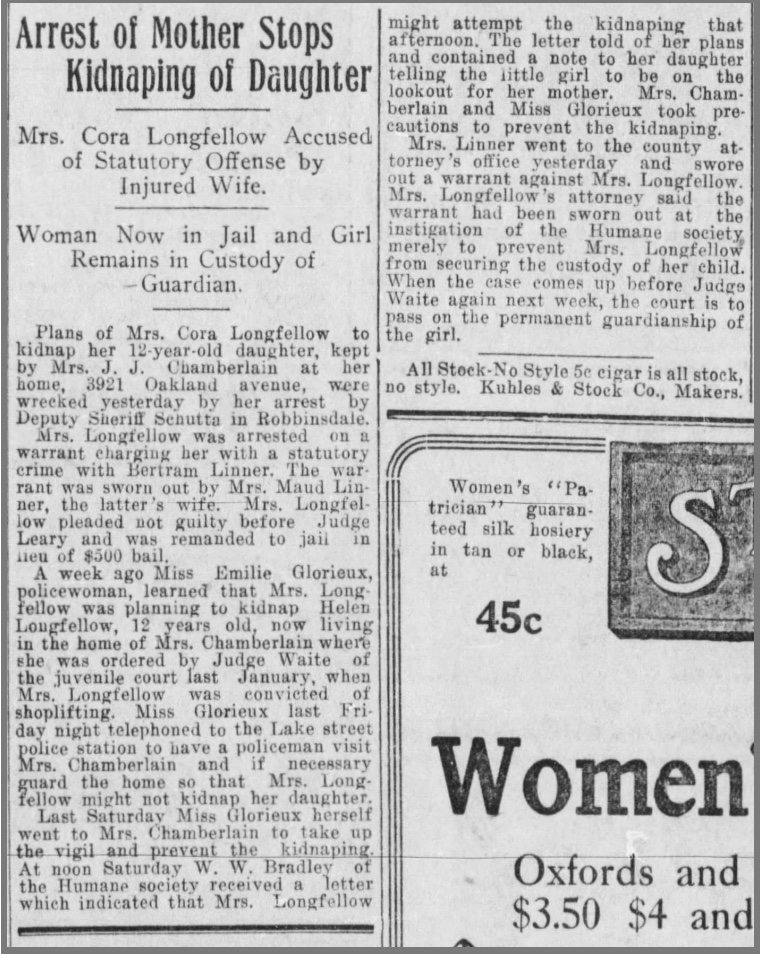
Officer Glorieux was in great demand as a speaker at various women’s clubs, university clubs and study groups.
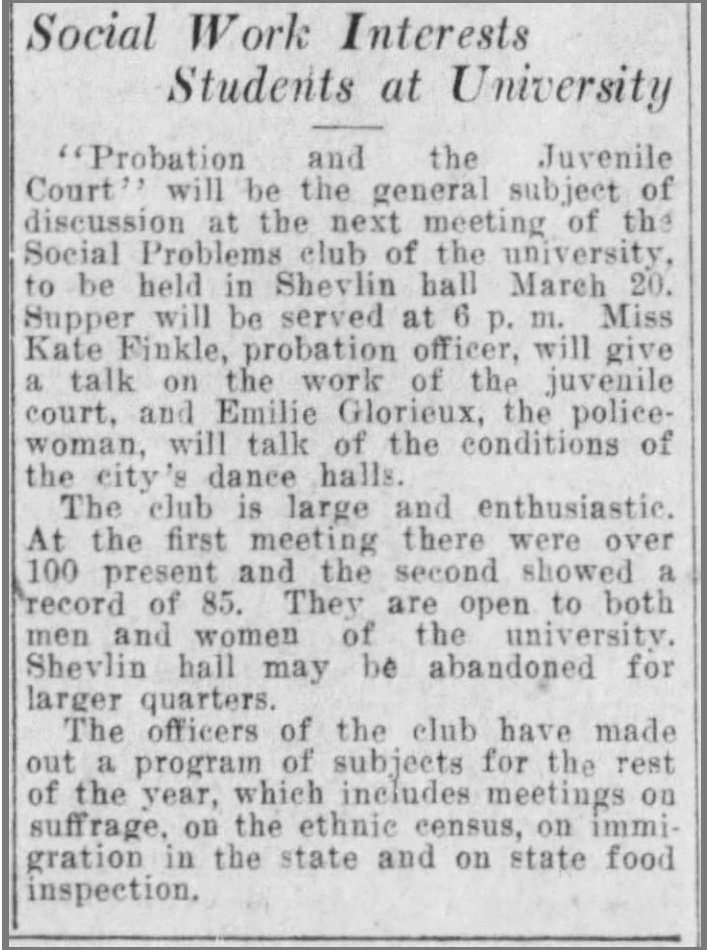
On January 24, 1913, Mayor Wallace G. Nye informed Emilie Glorieux that he could not reappoint her to her role as policewoman because the law did not actually permit the appointment of policewomen. A bill was in front of the legislature that would allow the mayor to appoint as many as five policewomen but until that bill became a law Mayor Nye could not reappoint Emilie Glorieux as policewoman.
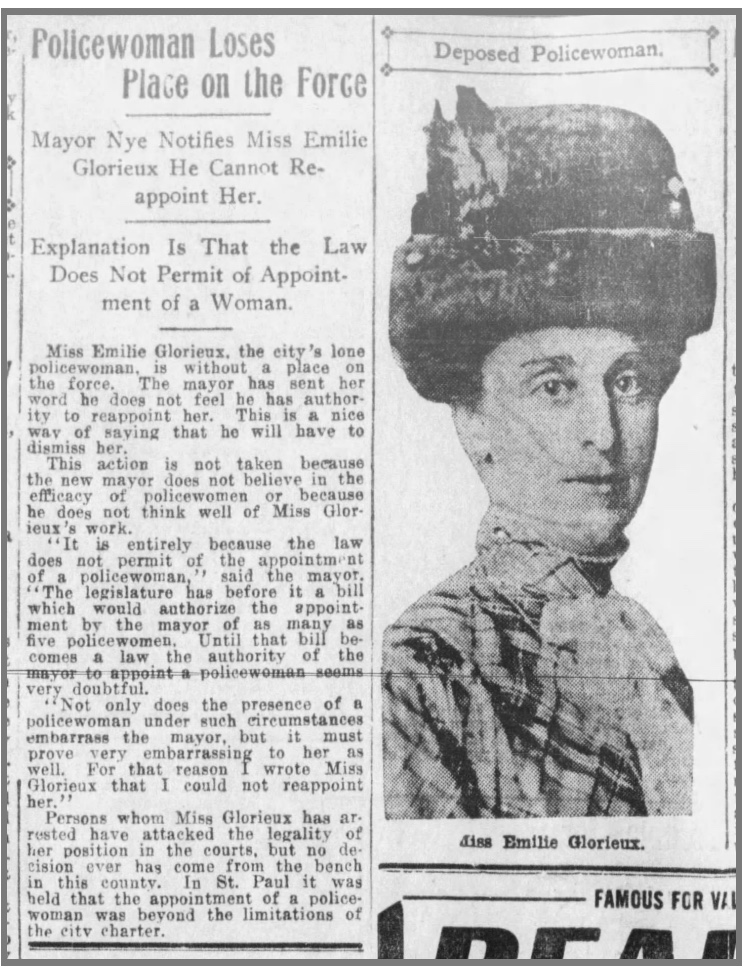
Articles and photograph courtesy Minneapolis StarTribune
